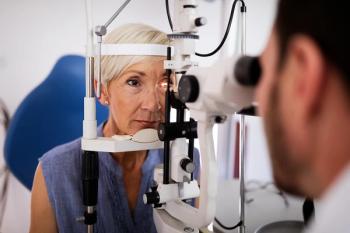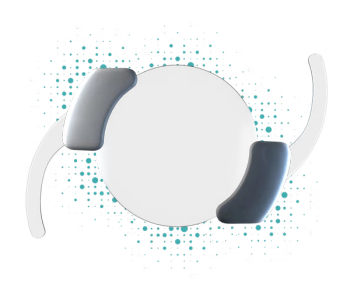
Blog: How I learned to stop worrying and love tech refractions
The views expressed here belong to the author. They do not necessarily represent the views of Optometry Times or Multimedia Healthcare.
I rarely revisit a previous post in this space, but I’m going to make an exception.
Remember in my last post -“
Related: Troubleshooting optical complaints
Because the Rxs were significantly different and I couldn’t be sure of the skill level of the techs or how closely they were supervised, I felt her best chance for a comfortable, clear Rx was with an OD whose training in refraction and optics was most likely to be up to par.
Do you also remember that old saying, “Do as I say, not as I do?”
I think you suspect by now where this post is heading.
Also by Dr. Brown: Blog: How not to deal with a non-ocular fungal infection
Delegation
The subject of delegating more of the eye exam, including refraction, to ancillary personnel is receiving increasing play these days, thanks in large part to the quest for more efficiencies to counter declining reimbursements and the industrial-sized time sink of modern electronic health records (EHRs).
Plus, if one is to really dive headlong into “medical optometry” and its inherent complex decision-making, the typical OD is going to have to reserve extra gigs of personal bandwidth for more pressing “saving sight and life” challenges that will start cropping up.
But for many ODs, refraction remains their primary raison d'être, and to suggest that anyone other than an OD can capably perform the procedure is tantamount to heresy-sort of like proposing that a priest turn over Mass to an acolyte.
About a decade ago, I was facing a dilemma: either keep on doing every refraction, typing and inputting all the clinical data, and making complex “sight and life” decisions-and flame out as a result-or, train that smart and eager tech I just hired to do most refractions for me.
Related:
I did something then that very few of you would have the time to do now: I made him an apprentice. We followed the old teaching adage of “see one, do one,” but in his case he observed and performed hundreds with me in the room, after which I turned him loose with me continuing to review each refraction he performed.
At first, he would leave his refraction in the phoropter and I would do a quick recheck. Over time, I did this less-with only the occasional audit-because I rarely had to change his results.
During that same period, I noticed our glasses remake rate dropping as well. Humbling? Maybe a little. But the benefits to clinic flow-and my personal health-far outweighed any bruise to my optometric ego.
If you don’t think such delegation is a valid process, try telling that to ophthalmologists who have taught physician assistants (PAs) and nurse practitioners (NPs) to safely and effectively perform YAG laser capsulotomies and intravitreal injections.
Related: Knowing when to delegate testing responsibilities In our clinic
Let me describe how we do it in our clinic today. I would never contend that there is one right way to implement tech refraction or that our way could work for everyone. But it works well for us.
Start with a top-shelf autorefractor (AR), or better yet, wavefront aberrometer (WFA), which can give techs a solid starting point and a quick idea of the clarity of the media and the presence of higher order aberrations so they don’t spin their wheels and waste too much time with the subjective.
Preferably, the AR/WFA is attached to a digital phoropter so that techs can quickly and seamlessly begin performing the subjective. We have good ones at our clinic, and the company that makes them provided our techs with training, which we supplemented with some of our own.
After completing the refraction, the tech dilates the patient, places him in the exam lane, and then discusses the results with me. If the tech is uncomfortable with the refractive end point on a patient, she is the first to say so, and then asks me to check behind her.
Read more by Dr. Brown
Quality checks
At this point, we perform quality check number one. I look at the patient’s entering acuities, habitual Rx, AR/WFA results, and the tech’s subjective.
I then ask myself: Do these numbers taken together make sense?
Most of the time, they do, and I go with the tech’s refraction. Sometimes I tweak it a little bit on the spot-call it doctor’s intuition. Other times, there are lingering questions, and that is where quality check number two comes in.
It begins when I enter the exam lane. Before touching the phoropter, I will often take a glance at the media and the posterior pole since we have a high prevalence of ocular disease in our clinic. No use in me spinning my wheels, either.
I may refract one or both eyes at that point. Sometimes it takes an experienced OD-who is attuned to changes in tone, cadence, and confidence of voice, and can engage the patient in subtle exchanges and interplay-to get the Rx just right. Still, it is rare that I change any of the tech’s previous work to a significant degree.
Related:
It is also rare for dilation to significantly impact the refraction in our mostly older patient population. But on occasions when it might, we reschedule the patient for a dry refraction.
I ask about a patient’s lifestyle and occupational needs, and then review lens type options. I may tweak the Rx even more based on that. If everything seems in order, the patient goes to our optician, who by the way, is top notch in her own right (another vital component in the refractive process).
If the patient comes back with a glasses problem, the optician, techs, and I go through the standard troubleshooting paradigm. If the patient needs another refraction, I make a point of doing it myself to satisfy both the patient and me that we have done the very best we can.
Our optician tells us-and I trust her because she has access to the data-that our clinic has the lowest glasses remake rate of any of the other clinics in our region that her company serves.
You will notice that at no point do I abdicate my responsibility. I am in complete control of the refraction process and own its ultimate outcome, just via a more efficient route that works well in our busy, disease-heavy clinic.
We have been doing this for years, and the world hasn’t stopped turning, or worse, blown up like it did in Dr. Strangelove.
Related: The underlying concern of online refractions
Wrapping up
Back to my sister.
She did as I advised and sought out an OD and insisted that the doctor alone perform the refraction.
I heard back that she is having a little trouble with her prescription-that it’s just a little off.
I offered up a prayer of thanks to the optometric gods that she didn’t road trip to Alabama for me to refract her. Bullet dodged!
Newsletter
Want more insights like this? Subscribe to Optometry Times and get clinical pearls and practice tips delivered straight to your inbox.




























